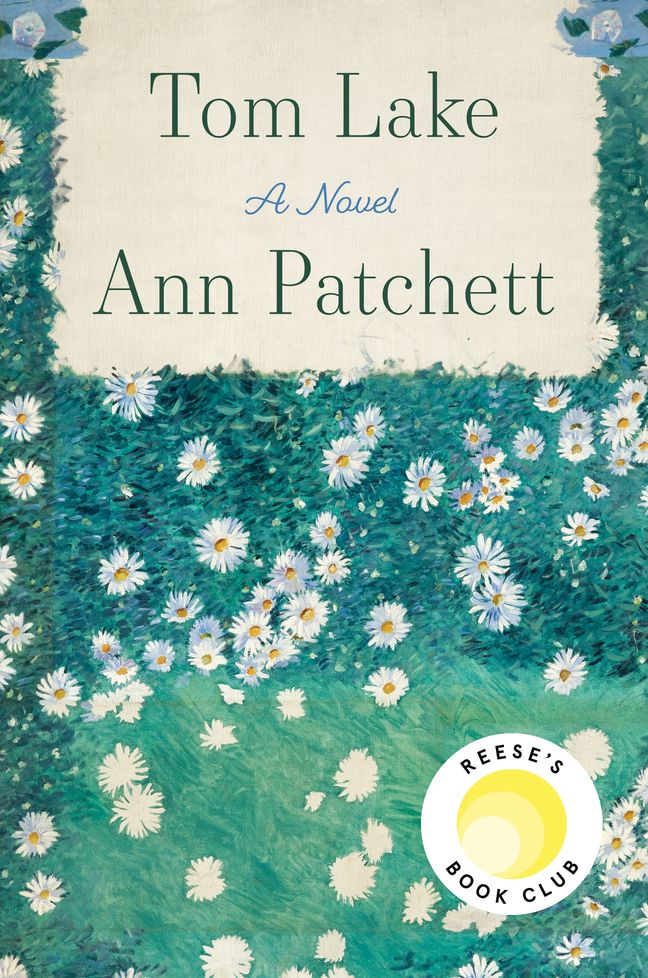Ann Patchett is very well known even outside the book-o-sphere as both an award-winning author and owner/proud champion of an independent bookstore. While I haven’t loved all of her novels, they are always thought-provoking and illuminating about our place in the world and how to live our best imperfect lives. Well-written, too, but that should be a given for anything I review here.
Also a given? No spoilers here, so read on.
The sole narrator of Patchett’s 2023 novel, Tom Lake, is a 57-year-old former actress named Lara Nelson; the story takes place during the first pandemic summer. Lara is secretly and selfishly joyful that a global crisis has brought her grown daughters back to live at the family farm, especially since they grew up picking cherries and can fill in for absent seasonal workers. As their father puts it to the middle child, Maisie (a budding vet), “College is closed. College can’t save you now.”
Snappy storytelling
To keep her three very different daughters entertained, Lara agrees to tell them about her own past. Interspersed with Lara’s carefully chosen words about her own teenaged and twenty-something years are her twenty-something daughters’ reactions to each segment, and both the dialogue and internal thoughts are almost always snappy—but never overwritten or unrealistic. ”I didn’t know it was going to be funny,” Maisie announces, at the beginning of chapter two. “No idea,” the youngest (Nell, an aspiring actor) agrees. Lara responds:
“It isn’t funny,” I tell them. “You know that. It isn’t a funny story except for the parts that are.”
“Life,” Nell says, dropping her head against my shoulder in a way that touches me. “Keep going.”
Not a name, a place
Before I started reading Tom Lake, I assumed the title was a character’s name. Turns out, it’s a location that is, metaphorically at least, the geographic centrum of the book. Though all of the “now” action takes place within the boundaries of the family farm, Lara Nelson clearly would have had a very different life if she’d never acted in the summer stock theatre at Tom Lake. It was there that she met her husband, as well as the now-famous movie star she “dated” that summer.
I put “dated” in quotes, because Lara herself muses about that term’s interpretation—aided by a mother’s careful filtering of facts. Early on, she explains to the reader that “the parts they’re waiting to hear are the parts I’m never going to tell them.” Later, she adds: “I am making one part of my life into a story for my daughters, and even though they are grown women and very forward-thinking, let’s just assume I leave out every mention of the bed.”
When I finished the book, I immediately went back to the beginning and read the whole thing again because the ending raised an annoying question: how had I already known a fact that was (I thought) only actually revealed on the final pages? Turns out, there were several breadcrumbs—including one that on the second read through, seemed to land far too early. But that tiny mistake only made me more impressed with the otherwise seamless story weaving; on any given page, I didn’t really care what year it actually was.
Our past is always present
I recommend Tom Lake for anyone who’s ever been amazed by how our past comes back to haunt us and the unique editorial choices of our own memories. There are also plenty of pithy observations about how we live now compared to a pre-Internet world, and how difficult it is to communicate that to a generation “so certain about the the things they do not know.” Here’s one micro example: “How did anyone survive without cellphones?” Maisie asks. “We survived very nicely,” her mother responds. Hard to believe, I know.
Got a book to recommend? Share it in the comments below, or send me an email. I read every single one, with gratitude—and don’t worry Larry, I haven’t forgotten about that “finding a best editor” post you requested!
